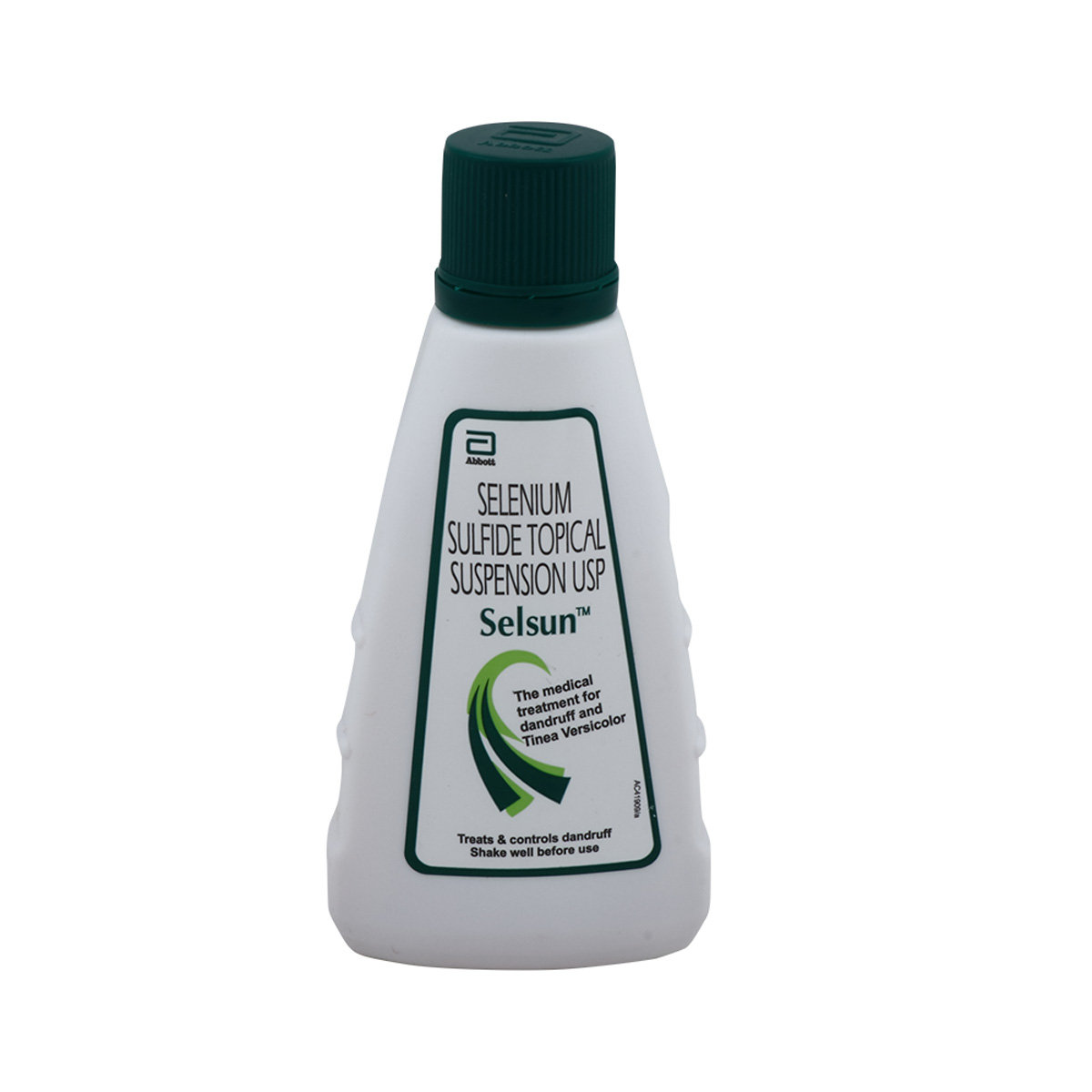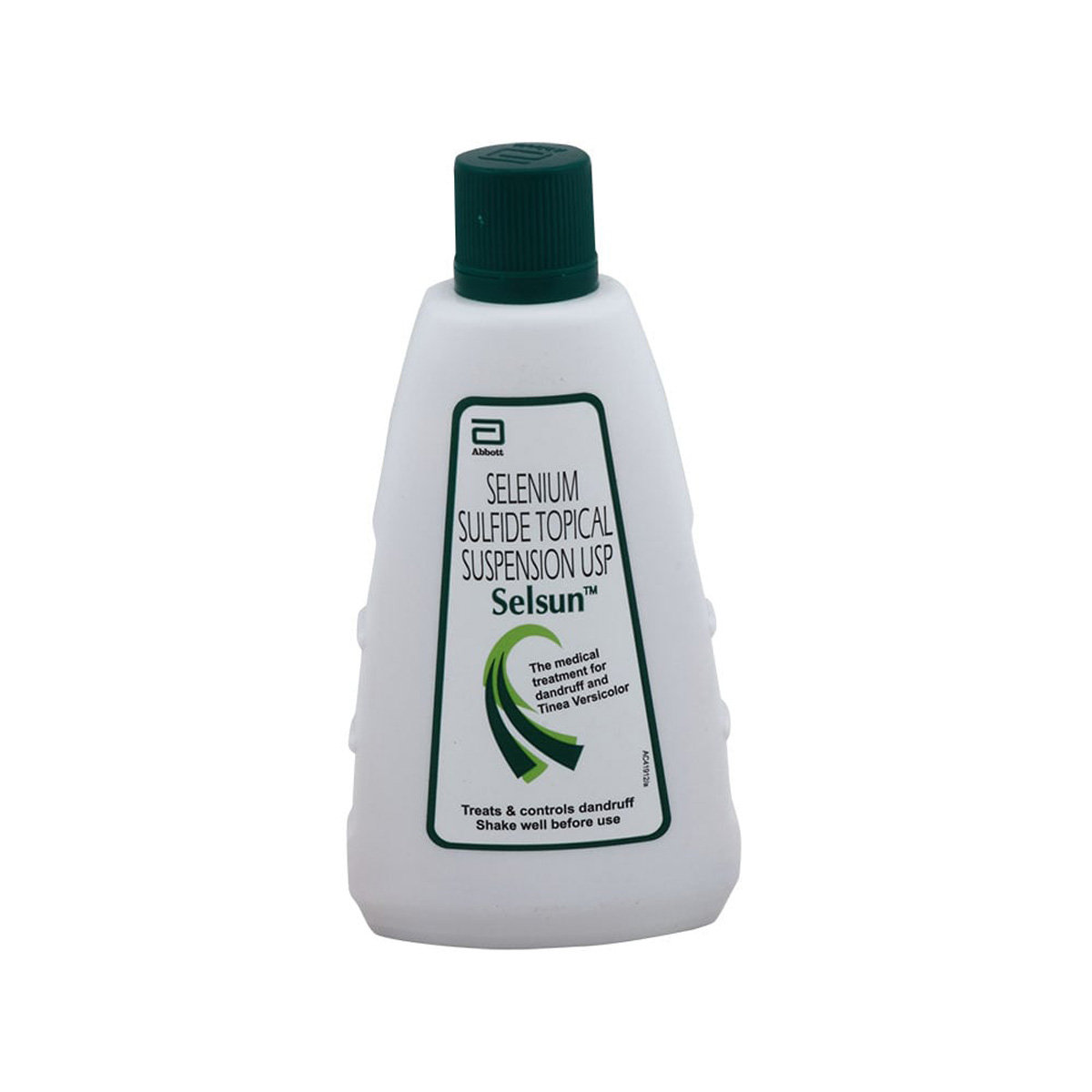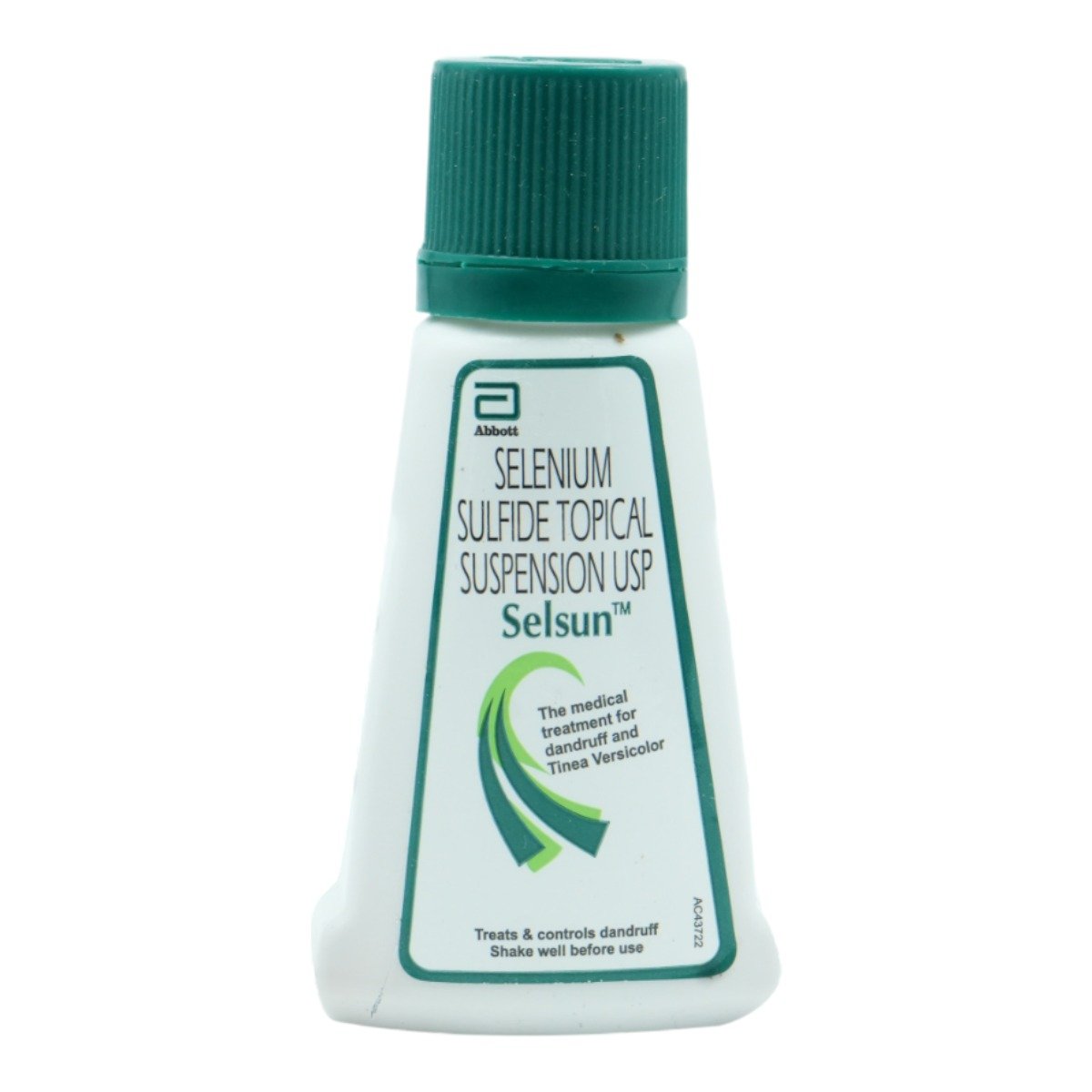Selenium Sulfide
About Selenium Sulfide
Selenium Sulfide is an antifungal medication, primarily used to treat seborrheic dermatitis (dandruff or scaly patches and red skin on the scalp), and tinea versicolor (a fungus that discolours the skin). Dandruff is a skin condition that causes itchy and scaly white or greyish flakes on the scalp skin.
Selenium Sulfide contains Selenium sulphide, an antifungal agent. It relieves itching and flaking of the scalp and removes the dry, scaly particles. It reduces skin damage due to infection, decreases flaking or scaling of the skin and helps in new skin formation. It blocks the enzymes that are involved in epithelial tissue growth.
Your doctor will advise the appropriate dose that suits your infection. Selenium Sulfide is for external use only. If the medicine gets into your eyes, nose or mouth, rinse with cold water. Selenium Sulfide has common side effects like dry scalp, skin irritation or temporary hair loss. These side effects usually do not require medical attention and gradually resolve during the treatment. If you experience any other symptoms you think may be due to Selenium Sulfide, please consult your doctor for further advice.
Let your doctor know if you have any allergic reactions to Selenium Sulfide or other medications. Please check with your doctor before using Selenium Sulfide if you have any other skin infections. Selenium sulfide in Selenium Sulfide may harm the foetus when applied to a pregnant woman's body surfaces or can affect reproduction capacity. Hence it is advised that pregnant and breastfeeding women should consult the doctor before starting Selenium Sulfide. Selenium Sulfide is not recommended in children younger than two years.
Uses of Selenium Sulfide
Medicinal Benefits
Selenium Sulfide consists of Selenium sulphide, an antifungal agent that relieves itching and flaking of the scalp and removes the dry, scaly particles. It reduces skin damage due to infection, decreases flaking or scaling of the skin and helps in new skin formation. It blocks the enzymes that are involved in epithelial tissue growth. Selenium sulfide is a mineral compound used to treat dandruff, seborrhoea, and tinea versicolor.
Directions for Use
Storage
Side Effects of Selenium Sulfide
- Dry scalp
- Skin irritation
- Temporary hair loss
Drug Warnings
Before using Selenium Sulfide, let your doctor know if you have a history of skin infections and allergic reactions to Selenium sulfide. Selenium Sulfide is intended for topical (for skin use) only, and avoid using it on red, broken and irritated skin. Do not cover the affected areas with a dressing or bandage unless the doctor advised. If you are wearing gold, silver or other metallic objects, please remove them while using Selenium Sulfide to avoid discolouration. When treated for tinea versicolor, Selenium sulfide in Selenium Sulfide may harm the foetus when applied to a pregnant woman's body surfaces or can affect reproduction capacity. Hence, it is advised that pregnant and breastfeeding women should consult the doctor before starting Selenium Sulfide.
Drug Interactions
Drug-Drug Interaction: Please inform your doctor if you use any medicines, including herbal and vitamin supplements.
Drug-Food Interaction: No interactions found or established.
Drug-Disease Interaction: Brief your doctor if you have a medical history of allergic reactions to medicines and other skin infections before using Selenium Sulfide.
Drug-Drug Interactions Checker List:
Safety Advice

Alcohol
not applicableNo interaction found/ established. Please consult your doctor before using Selenium Sulfide.

Pregnancy
cautionSelenium Sulfide in Selenium Sulfide may harm the foetus when applied to a pregnant woman's body surfaces or can affect reproduction capacity. Please consult your doctor if you are planning to become pregnant or already pregnant before starting Selenium Sulfide.

Breast Feeding
cautionThere is limited data on how Selenium Sulfide affects breastfeeding infants. It is not known if Selenium Sulfide can excrete into breast milk. Please consult your doctor before starting Selenium Sulfide.

Driving
not applicableSelenium Sulfide has no or negligible influence on the ability to drive or use machines.

Liver
cautionLet your doctor know if you have any history of liver diseases. Your doctor will weigh the benefits and potential risks before recommending Selenium Sulfide.

Kidney
cautionLet your doctor know if you have any history of kidney diseases. Your doctor will weigh the benefits and potential risks before recommending Selenium Sulfide.

Children
cautionSelenium Sulfide is not recommended for use below two years of age.
Habit Forming
Diet & Lifestyle Advise
- Avoid overusing the styling tools like blow dryers, curling rods, and chemical dying, which can cause loss of natural hair oils and cause dandruff and hair fall.
- Regular oiling helps in the blood circulation of the scalp and nourishes the roots.
- Washing your hair twice a week with a good shampoo and conditioner can also improve your dandruff.
- Practise yoga and meditation to control your stress, which is the greatest enemy of hair fall.
- Get your regular medical examinations done to keep a check on your hormonal profile and nutritional deficiencies.
Special Advise
It is advised to reach out to your doctor if you do not notice any improvement after 2-4 weeks of treatment.
Patients Concern
Disease/Condition Glossary
Seborrheic dermatitis is a skin condition that causes an itchy rash with dry, flaky scales on the skin that contains oil glands, such as the scalp, face, back and upper chest. It may also cause stubborn dandruff.
Dandruff is a skin condition that causes flaking of the scalp skin. Symptoms include skin flakes on the scalp, hair, eyebrows, shoulders, and itchy scalp. Dandruff can be caused by irritated/oily skin, the development of fungus on the scalp, dry skin, sensitivity to hair care products like shampoos or other hair treatments, and skin conditions like psoriasis.
Tinea versicolor is a fungal infection that causes small, discoloured patches of skin.
FAQs
Selenium Sulfide consists of Selenium sulfide, an antifungal agent that relieves itching and flaking of the scalp and removes the dry, scaly particles. It works by blocking the enzymes that are involved in epithelial tissue growth.
If you need to apply the shampoo on light, blonde, grey, or chemically treated (bleached, tinted, permanent-waved) hair, rinse your hair thoroughly for 5 minutes to decrease the chances of discolouration.
Selenium Sulfide is safe to use with a doctor's advice and over a limited period (2-4 weeks). Let your doctor know if your symptoms are not relieved by then or experience any side effects.
Selenium Sulfide is for topical (for skin) use only. Do not put a bandage or dressing on the affected area while treating unless the doctor advised. If the medicine gets into your eyes, nose or mouth, rinse with cold water. If you are wearing gold, silver or other metallic jewellery, remove them before using Selenium Sulfide since it causes discolouration of objects.
Please consult your doctor before using Selenium Sulfide if you have other skin infections. Let your doctor know if you are allergic to Selenium Sulfide or any of its components. Please do not use Selenium Sulfide on red/irritated/broken skin.
Please do not stop using Selenium Sulfide on your own, even if the symptoms are relieved until your course is finished. Your symptoms may improve even if the infection is not cured.
Available Medicines for
Selenium Sulfide

Candid TV Suspension 60 ml|For Dandruff, Tinea Versicolor
1 Bottle
₹297.9 (MRP 331)10%Off
cashback: 0
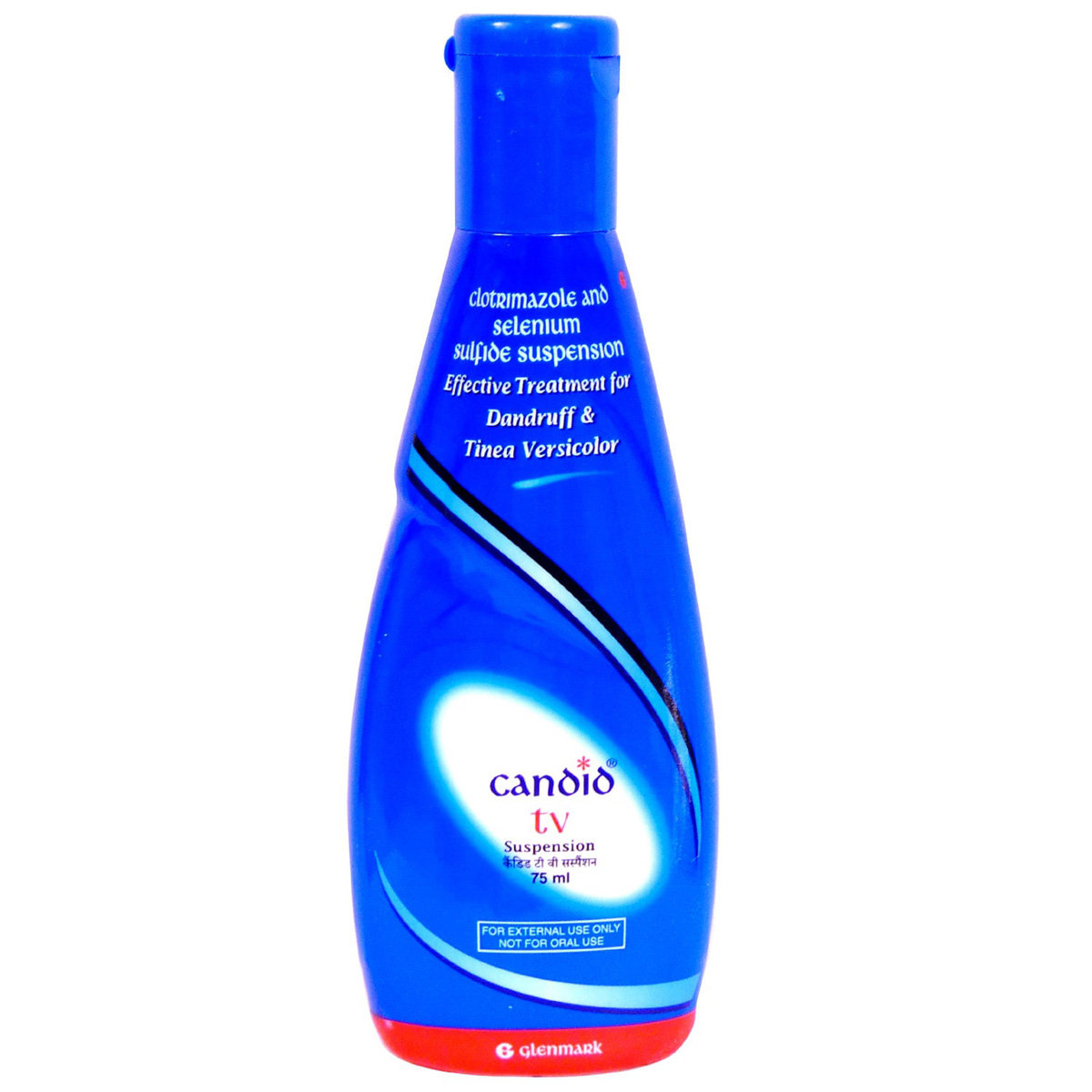
Candid TV Suspension 75 ml|For Dandruff, Tinea Versicolor
1 Bottle
₹297.9 (MRP 331)10%Off
cashback: 0

